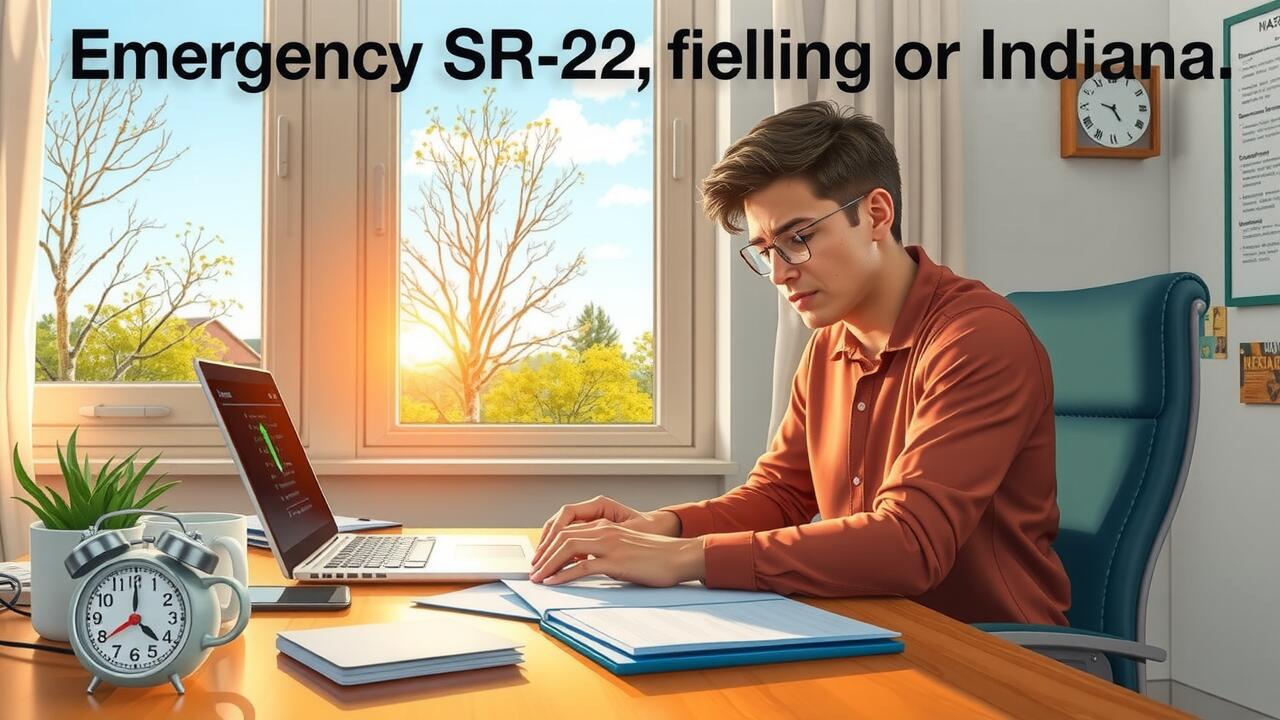
Table Of Contents
Failure to Maintain Continuous Coverage
Maintaining continuous coverage is a critical aspect of holding an SR-22. When a policy lapses, the state may perceive the individual as non-compliant, which can lead to severe penalties. Insurers typically notify the state if a policy is canceled or interrupted. This notification often results in actions that can include license suspension or additional fines.
Individuals often underestimate the importance of staying proactive about their insurance status. A single missed payment can disrupt coverage. Once a lapse occurs, reinstating coverage can be complicated and costly. It's crucial to manage premiums effectively and remain informed about payment schedules to avoid any interruptions in coverage.
Risks Associated with Lapsing Policies
Lapsing policies can lead to significant legal consequences for drivers who are mandated to carry an SR-22. When coverage lapses, the state may view the driver as uninsured, potentially resulting in penalties, fines, or even the suspension of their driving privileges. This status can also complicate the reinstatement process and make securing future insurance more difficult and costly.
In addition to legal ramifications, there are financial risks attached to having a lapsed policy. Insurance premiums often increase for individuals who have gaps in their coverage history, reflecting a perceived higher risk by insurers. This added expense can burden drivers already facing financial difficulties due to previous infractions, creating a cycle of increased costs and legal challenges that can be hard to escape.
Not Understanding the Duration of Requirement
An SR-22 is often required for a specific time frame determined by the state. Failing to understand this duration can lead to unnecessary complications. Many individuals mistakenly believe that once the SR-22 is filed, they are free from obligations. In reality, the requirement can last anywhere from three to five years, depending on the circumstances surrounding the initial offense.
Awareness of the duration is critical for maintaining compliance and avoiding penalties. Individuals should keep track of when their SR-22 is set to expire and ensure they maintain active insurance coverage throughout the mandated period. Ignoring these time constraints can lead to lapses in coverage, which may result in further legal issues or added financial burdens. Being well-informed about the time frame allows individuals to better manage their insurance responsibilities.
How Long is an SR-22 Required?
The duration for which an SR-22 is required often depends on the specific circumstances surrounding the need for it. In many cases, drivers may find they need to maintain this form for a minimum of two years following a suspension or revocation of their license. Certain offenses, such as Driving Under the Influence (DUI), may necessitate a longer period, sometimes extending up to three years or more.
It is essential for drivers to understand that the SR-22 requirement does not automatically terminate after the set period. The insurance company must file the form continuously, ensuring that coverage remains uninterrupted. Failure to maintain the SR-22 for the required duration may lead to further penalties and complications in regaining full driving privileges. Keeping track of deadlines and renewing the form promptly can help avoid unexpected issues.
Ignoring Notification from Insurance Companies
Staying informed about any notifications from insurance companies is crucial for anyone required to carry an SR-22. Insurance providers often send important updates regarding policy status, deadlines, and compliance requirements. Ignoring these communications can lead to unintended lapses in coverage. This oversight may result in penalties, further complications, or even license suspension.
Additionally, timely responses to notifications can prevent misunderstandings that could jeopardize one's status with the state. A lack of action based on these messages can leave individuals vulnerable to legal consequences. Keeping an eye on all correspondence and promptly addressing any issues can help maintain compliance and avoid additional stress during what is often an already challenging situation.
Importance of Staying Informed
Staying informed about changes and notifications from insurance companies is crucial for anyone mandated to file an SR-22 form. Insurance companies often send important communications that outline any adjustments to coverage, premium rates, or policy requirements. Missing such notifications can lead to unintended lapses in coverage, which may result in legal complications or additional penalties.
Understanding the implications of any correspondence allows individuals to take timely action. Whether it involves renewing policies, updating information, or addressing potential issues, being proactive minimizes risks associated with SR-22 requirements. This vigilance not only helps in maintaining compliance but also contributes to continued financial and personal stability.
FAQS
What is an SR-22 form?
An SR-22 form is a certificate of financial responsibility that proves a driver has the minimum required auto insurance coverage. It is typically required for individuals who have committed certain driving offenses.
What happens if I fail to maintain continuous coverage on my SR-22?
If you fail to maintain continuous coverage, your insurance company will notify the state, and your SR-22 could be canceled. This can lead to legal penalties and further complications in reinstating your driving privileges.
How long do I need to maintain an SR-22 in Indiana?
In Indiana, you are generally required to maintain an SR-22 for a minimum of two years, but this duration may vary based on the specific circumstances of your case, such as the nature of the offense.
Can I ignore notifications from my insurance company regarding my SR-22?
No, ignoring notifications can lead to serious consequences, including the cancellation of your SR-22 and potential legal issues. It is essential to stay informed and respond promptly to any communication from your insurance provider.
What risks are associated with lapsing policies while on an SR-22?
Lapsing your insurance policy while under an SR-22 can result in suspension of your driver's license, fines, and additional requirements to reinstate your driving privileges. It is crucial to keep your coverage active to avoid these risks.